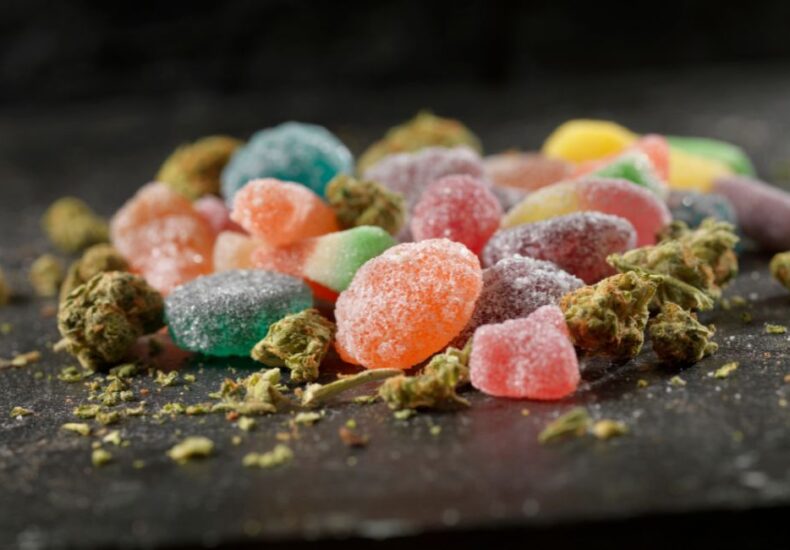
Long-lasting Edibles Relief
Long-lasting Edibles Relief
In recent years, the popularity of edibles as a form of relief has surged. These consumable products, infused with cannabinoids, offer a unique and prolonged experience compared to other methods of consumption. This article explores the benefits, mechanisms, and considerations surrounding long-lasting edibles relief.
Understanding Edibles
Edibles are food products infused with cannabis extracts. They come in various forms, including gummies, chocolates, baked goods, and beverages. Unlike smoking or vaping, edibles provide a discreet and smoke-free option for those seeking the therapeutic effects of cannabis.
How Edibles Work
When consumed, edibles are metabolized in the liver, where delta-9-tetrahydrocannabinol (THC) is converted into 11-hydroxy-THC. This metabolite is more potent and has a longer half-life, contributing to the extended duration of effects. The onset of effects can take anywhere from 30 minutes to 2 hours, with relief lasting up to 8 hours or more.
Benefits of Long-lasting Relief
Edibles offer several advantages for those seeking sustained relief:
- Prolonged Effects: The extended duration of edibles makes them ideal for chronic pain management and long-lasting anxiety relief.
- Discreet Consumption: Edibles provide a smoke-free alternative, allowing users to consume them without drawing attention.
- Precise Dosing: Many edibles come with clearly labeled dosages, enabling users to control their intake more accurately.
Case Studies and Statistics
Research indicates that edibles are particularly effective for patients with chronic conditions. A study published in the Journal of Pain found that patients using cannabis edibles reported a significant reduction in pain levels. Additionally, a survey by the Brightfield Group revealed that 55% of users prefer edibles for their long-lasting effects.
Considerations for Edible Use
While edibles offer numerous benefits, there are factors to keep in mind:
- Delayed Onset: The delayed onset can lead to overconsumption if users are not patient. It’s advisable to start with a low dose and wait for effects to manifest.
- Individual Variability: Metabolism, body weight, and tolerance levels can affect how edibles impact an individual.
- Quality and Ingredients: Choosing products from reputable sources ensures safety and efficacy. Checking ingredient lists can help avoid allergens or unwanted additives.
Examples of Popular Edibles
Several brands have gained popularity for their high-quality edible products:
- Kiva Confections: Known for their artisanal chocolates and gummies, Kiva offers a range of dosages to suit different needs.
- Wana Brands: Specializing in gummies, Wana Brands provides a variety of flavors and cannabinoid ratios.
- Cheeba Chews: These taffy-like edibles are praised for their consistency and potency.
Potential Challenges
Despite their benefits, edibles present certain challenges:
- Regulation and Labeling: Inconsistent regulations across regions can lead to discrepancies in labeling and potency.
- Storage and Shelf Life: Proper storage is necessary to maintain potency and prevent spoilage.
- Accidental Consumption: Edibles can be mistaken for regular food items, posing a risk to children and pets.
Addressing Challenges
To mitigate these challenges, consumers can take proactive steps:
- Research and Education: Staying informed about local regulations and product information can help make safer choices.
- Secure Storage: Keeping edibles in child-proof containers and out of reach of pets reduces the risk of accidental ingestion.
- Clear Labeling: Advocating for standardized labeling practices can improve consumer safety and confidence.
Conclusion
Long-lasting edibles provide a valuable option for those seeking sustained relief from various conditions. With their discreet nature, precise dosing, and prolonged effects, they have become a preferred choice for many. By understanding the mechanisms, benefits, and challenges associated with edibles, consumers can make informed decisions that enhance their well-being. As the market continues to evolve, ongoing research and education will play a pivotal role in maximizing the potential of edibles for therapeutic use.
Recent Posts
- A Deep Dive into the very best Gold Individual Retirement Account Companies for Retirement Safety And Security
- An All-natural Option: Exactly How CBD Oil Can Assist Reduce Joint Inflammation in Dogs
- A Natural Service: Just How CBD Oil Can Assist Alleviate Joint Inflammation in Dogs
- The Relevance of Researching Gold Individual Retirement Account Firms Prior To Spending
- Avoiding Common Pitfalls in Your 401k to Gold IRA Rollover Journey